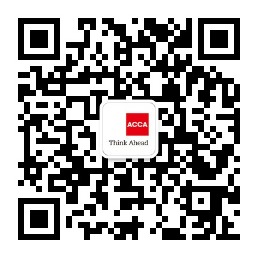数字时代的伦理道德和信任
2017年初,ACCA展开了一系列全球调查,汇集了10000多名专业会计师和学员对伦理道德的观点和看法,其中包括500多名执行高管。被调查者中,80%的专业会计师认为在不断演变的数字时代,坚守道德原则与行为将变得更加重要。在谈及其所在公司的会计师时,持有相同观点的执行高管占相似的比例。
此外,90%的专业会计师认为遵守道德的行为有助于在数字时代建立信任。同时,几乎所有的(95%)执行高管都认为会计师的道德行为有助于其所在组织与内部和外部利益相关者建立信任。
为了凸显数字时代下进行道德分析的特殊性,我们从六个数字相关主题定义伦理道德,包括:网络安全;基于平台的商业模式;大数据与分析;加密数字货币与分布式记账;自动化、人工智能与机器学习;技术采购。通过与CFO、合伙人或其他同等级高级财务专业人员进行讨论,将该主题分类告知参与者。
这些数字相关主题的概念中,在谈及存在违背风险的国际道德准则委员会(IESBA)基本原则时,专业胜任能力和职业谨慎出现的最为频繁。这反映了在数字时代下工作环境在一定程度上呈现出之前没有见过的道德方面的信息。
展望未来,有关伦理道德违背风险的讨论似乎已超出了诚实直接的职业与商业关系(诚信)问题的范畴。例如,如果你不能够充分理解分布式记账的话,你将很难去对其使用者进行道德判断。
除技术能力外,未来的专业会计师需要能够展现其在经验、智力、创造力、数字技能、情商和视野等方面成功的全面技能。而该技能的核心便是“道德商”。
Early in 2017, ACCA carried out global surveys of attitudes to ethics among 10,000 professional and trainee accountants, and of those of over 500 senior (‘C-suite’) managers. More than 8 in 10 of these accountants around the world were of the view that strong ethical principles and behaviour will become even more important in the evolving digital age. This view was echoed by a similar proportion of C-suite1 executives, referring to the accountants in their organisations.
Furthermore, 9 in 10 professional accountants agree that ethical behaviour helps to build trust in the digital age. And almost all (95%) C-suite executives think that the accountant’s ethical behaviour helps the organisation build trust with internal and external stakeholders.
In order to lend specificity to the analysis of ethics in a digital environment, ethical aspects were identified across six digital themes. These themes were cybersecurity; platform-based business models; big data and analytics; cryptocurrencies and distributed ledgers; automation, artificial intelligence and machine learning; and procurement of technology. The observations are informed by discussions with senior finance professionals, typically at the level of CFO, partner or equivalent.
In the context of these digital themes, the IESBA fundamental principle which emerged most frequently as being at risk of compromise was professional competence and due care. This may be a reflection of the extent to which work situations in a digital age can present new information with ethical aspects that have not been seen before.
Looking ahead, it seems likely that risks of ethical compromises go way beyond issues of honest and straightforward professional and business relationships (integrity). For instance, it is difficult to apply ethical judgement to the use of distributed ledgers without a sufficient understanding of what they are.
The professional accountant of the future will need, in addition to technical capability, a rounded skill set that demonstrates key quotients for success in areas such as experience, intelligence, creativity, digital skills, emotional intelligence and vision. And at the heart of these lies the ethical quotient.

手机扫描二维码,关注ACCA中国官方微信。在对话框输入“0100”,即可将报告直接下载到您的手机。





